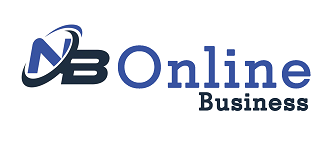Navigating taxes can feel overwhelming. That’s where a certified public accountant, or CPA, steps in to help. They possess the knowledge and skills to optimize your financial situation. When it comes to tax savings, their expertise becomes invaluable. A CPA can identify legal deductions, manage financial records, and plan for future tax obligations. For instance, a greenwood village small business accountant might provide insights tailored to your local regulations. This targeted approach ensures every detail is covered. A CPA also keeps up with the ever-changing tax laws. This knowledge prevents costly errors and maximizes your savings. Additionally, they provide guidance on retirement contributions and investment strategies. By doing this, they help secure your financial future. Choosing to work with a CPA means more than just tax returns. It means gaining a trusted partner in your financial journey. With their help, you can confidently approach tax season and beyond.
Understanding Tax Deductions
Tax deductions are essential for reducing your taxable income. CPAs know the ins and outs of available deductions. They identify opportunities that you might overlook. For example, home office expenses, charitable donations, and educational expenses can all offer tax advantages. With a CPA, you ensure that you claim every eligible deduction. This comprehensive approach results in significant savings.
Proactive Tax Planning
CPAs don’t just focus on the present. They also plan for the future. Proactive tax planning involves strategies that minimize tax liabilities over time. A CPA will consider your current financial situation and your long-term goals. This planning includes setting up retirement accounts or making investment decisions. By doing so, you prepare for a financially secure future while reducing your tax burden today.
Keeping Up with Tax Law Changes
Tax laws change frequently. It can be challenging to keep up with these changes. CPAs are required to stay informed about new regulations. They adapt strategies to comply with laws while still saving you money. For example, recent changes might affect tax brackets or deductions. A CPA ensures your tax plan remains effective despite these updates.

Efficient Record Keeping
Good record keeping is crucial for accurate tax filing. CPAs manage your financial records efficiently. They organize documents and track expenses, which simplifies the tax filing process. This organization reduces the risk of errors. It also ensures you have the necessary documentation if the IRS has questions about your return.
Comparison of CPA vs. DIY Tax Filing
| Aspect | CPA | DIY |
|---|---|---|
| Cost | Higher fees | Lower or software costs |
| Expertise | High expertise | Limited knowledge |
| Time Investment | Less time for you | More personal time needed |
| Error Risk | Low | Higher |
| Tax Savings | Maximized | Potentially missed |
Assistance with IRS Audits
Facing an IRS audit can be daunting. Here, a CPA acts as your advocate. They deal with the IRS on your behalf. Their expertise can clarify misunderstandings and resolve issues quickly. Knowing you have a professional handling your audit provides peace of mind.
Conclusion
Working with a CPA offers many advantages. From detailed tax planning to audit assistance, their services go beyond simple tax preparation. They bring expert knowledge and strategic insight to your financial situation. By managing deductions and navigating complex tax laws, they help you save money. The proactive approach of a CPA also sets you on a path to long-term financial stability. By choosing to collaborate with a CPA, you make an investment in your financial well-being.







